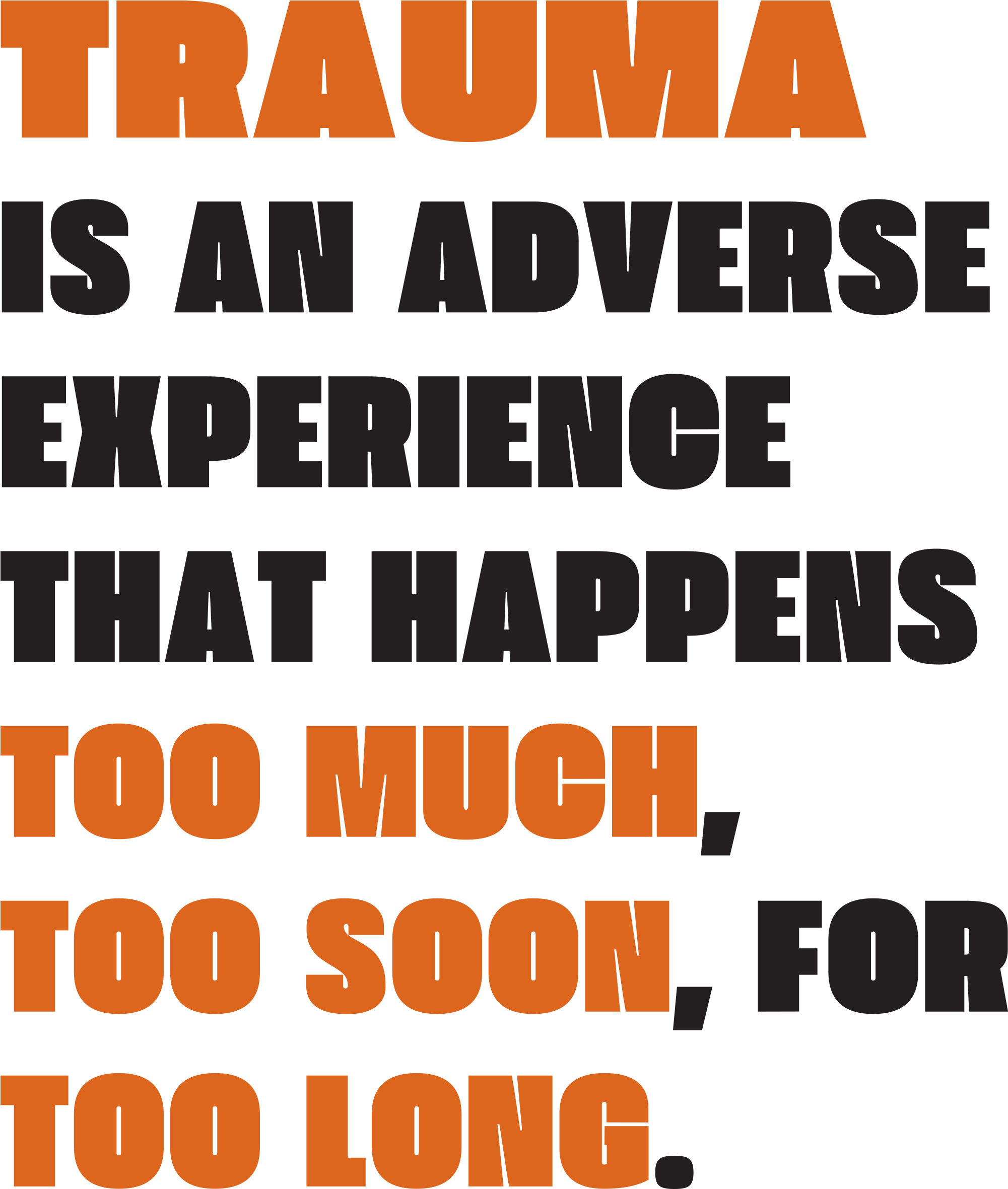

Trauma does not build character, but the image of the tree can be a valuable mirror for traumatized victims.
When Hollywood stars converged for this year’s Oscars, and two iconic Black American male figures took center stage (along with all Black America) old stereotypes revived: Black Americans are angry and cannot control that anger.
Even in the unblemished Fresh Prince of Bel Air. What the nation witnessed was traumatizing optically and auditorily, but it was Will Smith and Chris Rock whose personal traumas emerged for the world to behold.

Here is a beloved lamb who attended “an all-white school and was the frequent target of bullies, often being called racial slurs, being beaten by bullies, and enduring sexual assault, which he called ‘rape-ish.’” In all these assaults, no one helped or listened to him. One day, on the way to school, little Chris put bricks in his backpack, and when the children began to assault him, he picked up his backpack with heavy bricks and swung it at his terrorizers. The tiger within surfaced and one of the boys who was hit with the bag of bricks was rushed to the hospital and the doctors did not know if he would live. Since that day, Rock said, “I am afraid to let myself get angry.” He has confessed to suffering from a “big ego and low self-esteem.”
This megastar, a huge public persona with a net worth of more than $60 million, with decades of movie and television credits and awards, seeks therapy seven hours a week to build up this self-esteem that was destroyed as a child.

In 2021 on the “Today” show, he said:
“I talk about the idea that my father was abusive with my mother. I watched my father beat up my mother. I was too scared to do anything. And just on my young mind, it became imprinted . . . It’s like, what kind of kid stands there and lets somebody hit their mother, and they don’t do anything, you know? And that became the core trauma of my childhood that my personality and my persona formed around, to be the opposite of that, you know? I was never going to be scared again.”
Fast-forward. Jada Pinkett Smith boycotted the 2016 Oscars for not including Will Smith’s movie “Concussion” as a nomination. Kevin Hart resigned from hosting, and Chris Rock took the spot. In Chris Rock’s opening dialogue he made a joke about Jada Pinkett not attending the Oscars, that may have been highly offensive as the Hollywood stars laughed, and there was no response from Will.
Fast-forward. On her Red Table Talk show, Jada revealed in the presence of millions that she slept with her son’s friend, as Will Smith looked on painfully. Reported ratings showed over 14 million views in a matter of hours.
Now we are here at the Oscars and two traumatized, harmless iconic legends are on an unexpected collision course. As Will and Jada sit front and center, preparing shortly to receive the “Best Actor of the Year Award,” Chris Rock walks onto the stage to present someone but first makes a joke targeting Jada.
We all know what unfolded next. Chris Rock is doing his therapy work of comedy by putting his pain on someone else. Unfortunately, Jada was the recipient, and when Will Smith saw that Jada was not happy, and with millions of people watching, Will Smith stood to his feet, walked on stage, and slapped Chris Rock. He then sat down and yelled several times for Rock not to mention his wife’s name.
The repressed trauma surfaced, cutting off rationality in the brain’s cortical areas, allowing the emotional brain to take over in a moment. What Will was defending was not just his wife but the women in his life, his mother included, and he himself. All the years of not standing up for himself, defending the women he loves, and being stuck in a moment in time when his father beat up his mother and he did nothing.
These subconscious juices boiled into a visceral moment of barbaric action. For Will, it was about getting unstuck from his past and breaking the pattern and theme of his life. While he slapped Chris Rock, he saw his daddy, in Chris Rock, abusing his mother at that moment subconsciously. On the other hand, Chris Rock’s joke was a joke masking his own pain that has yet to be resolved.
The long-term, alarming, debilitating, and often bizarre symptoms of Post Traumatic Stress Disorder develop when we cannot complete the process of moving the internal energy in, through, and out of the “immobility” or “freezing” state. For Smith, that wrong moment that felt so right was a release from the frozen state he felt as a child watching his mother being abused. As he turned around and walked off stage, he was living in his childhood years in that one moment.
Trauma is the reshaping of both body and brain, biasing physiological states and mental activities (i.e., thoughts, beliefs, assumptions, images) by compromising pleasure, social engagement, self-control, and trust. Trauma is a direct or indirect experience, witnessing, or hearing of violence that brings unexpected and overwhelming distress. Trauma is an adverse experience that happens too much, too soon, for too long; and the experience of trauma is a relative term that depends on one’s background, experiences, and viewpoint. So be careful not to judge too quickly.
Sublimation appears to have been the default for Smith and Rock. That is, diverting their negative energy through the art of entertainment. Preachers do it through the exercise of preaching. Singers do it through the gift of singing. Executives do it through excessive work, and so forth.
Quiet as it is kept, sometimes even Black believers—church people—have failed to deal honestly with trauma, the negative energy inside of us that causes interpersonal conflicts, ethnic factions, class divisions, social cliques, and family splits. The work of the Holy Spirit is to help us deal with the tiger within, hidden in the crevices of the heart, unknown and unseen by ourselves and others.

Our bodies carry an unconscious story of their own, developed through experiences that start in the womb, apart from the rational brain. Until we listen to what the deepest parts of us are saying, the healing will never come. The tiger will stay within ruling us from a distance, and God will be unable to work in us to do of His pleasure.
As we all witnessed that traumatizing event that night, let us become less judgmental and check on the tiger within. Let us practice empathy for all parties and realize that our bodies carry a story that responds in ways that later catch the rational brain by surprise.
When you find yourself in an overwhelming situation and a stream of thoughts invade your mind, your respiration increases, heart rate goes up, blood pressure rises, and muscles tense; close your eyes, take deep, slow breaths, and tell yourself, “I am too precious in Jesus’ eyes to respond abruptly.” Sing your favorite Christian song. Quote your favorite Bible verses. Tell yourself, “This is only happening for the moment.” “This does not define who I am.” Take a walk. Go to the gym. Call a friend. Become mindful of what is happening inside the mind and body, and know that this too shall pass. These practices will help us grow ourselves around the trauma, like the tree, showing our exquisite individuality, character, and beauty.